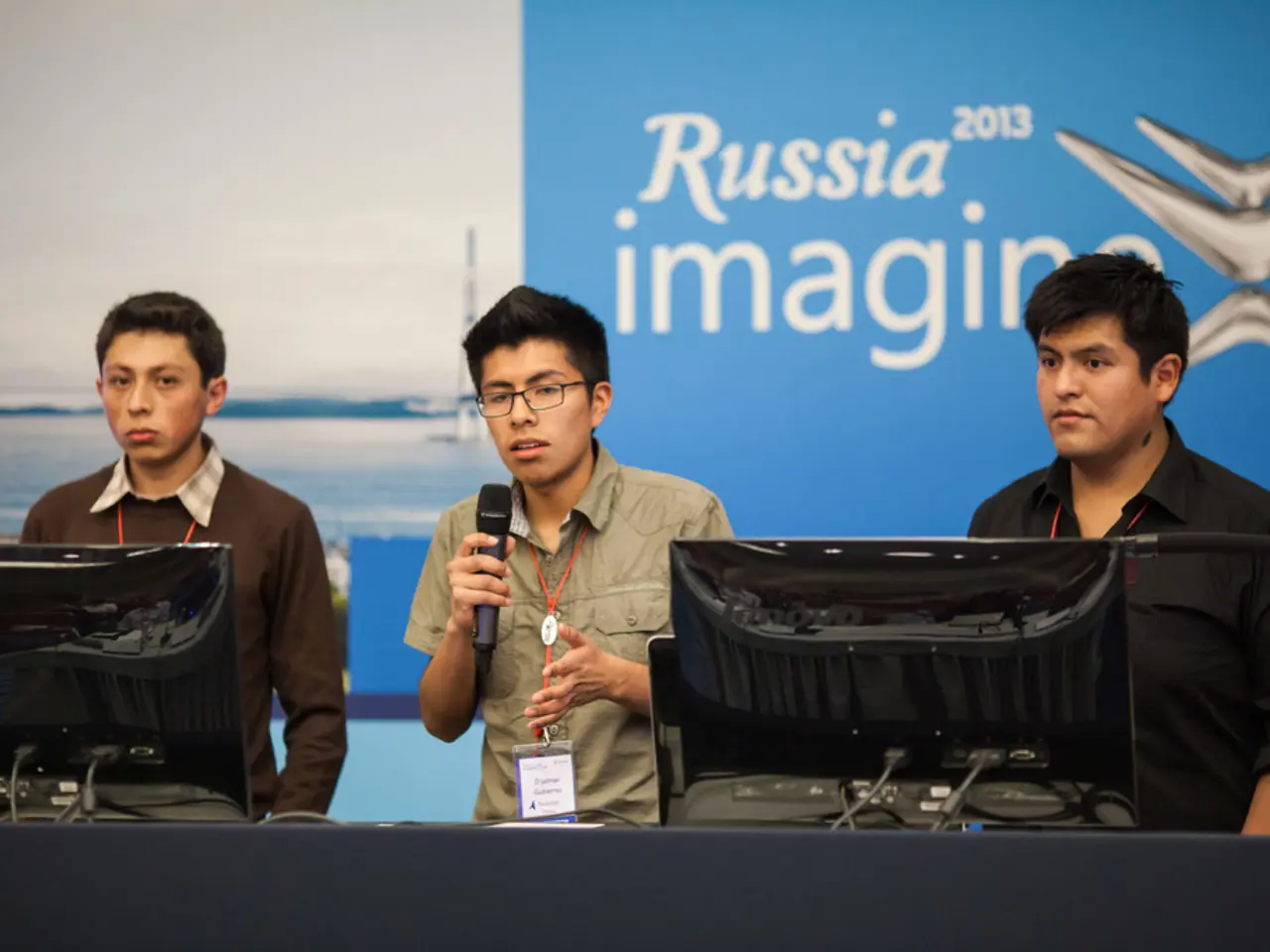Assurance for Kiev from Europe: No Deployment of American Military Personnel
The international community is actively discussing a new security framework for Ukraine, aimed at deterring future Russian aggression and securing a potential peace. The proposed structure bears resemblance to NATO's Article 5 mutual defense clause, with the United States and European allies, including Germany, France, and the UK, negotiating a two-layered approach to enhance Ukraine's military strength and provide external security guarantees [1].
Key aspects of these security guarantees include an "Article 5-like" structure, where an attack on Ukraine could trigger a collective response from guarantor countries. High-level military and diplomatic meetings are underway in Washington and Brussels, focusing on defining roles and mechanisms, involving figures like Joint Chiefs Chairman Gen. Dan Caine and retired NATO commanders [1].
Contributions from the USA and European allies are being discussed, with a joint military plan and diplomatic engagements on the table to support Ukraine's security [1]. Proposals have emerged, such as offering Ukraine NATO-type security assurances without full membership, reflecting caution about immediate expansion of NATO itself [2].
Ukraine's President Zelenskyy has emphasized the importance of security guarantees for his country in achieving peace with Russia. Despite disagreements over the need for an immediate ceasefire as a precondition for peace talks, Zelenskyy has stated that he is open to meeting with Kremlin leader Vladimir Putin without any preconditions [1].
The UK's Prime Minister Starmer has announced that representatives of the Coalition of the Willing will meet with their US counterparts to discuss security guarantees for Kyiv and preparations for the deployment of peacekeeping troops [3]. Germany and its partners are also working on details for security guarantees for Ukraine [4].
After a video conference of EU heads of state and government, EU Council President António Costa spoke of growing momentum regarding security guarantees for Ukraine. Costa mentioned that he had spoken with the Ukrainian president by phone after the video conference and called for a promise of protection similar to Article 5 of the NATO treaty [5].
While details remain incomplete and subject to negotiation, the framework emphasizes a dual approach — first, enabling Ukraine to maintain a strong defensive capability, and second, providing formalized multinational security commitments primarily from the U.S. and major European powers [1][2].
Notably, according to German government circles, Putin has agreed to a bilateral meeting with Zelenskyy [6]. Chancellor Friedrich Merz stated that the whole of Europe should participate in security guarantees for Ukraine [7]. However, the form of Germany's contribution to security guarantees is undecided.
Initial public reaction from Russia was muted, with Foreign Minister Sergei Lavrov stating that all contacts involving heads of state must be prepared with great care [8]. French President Emmanuel Macron warned against rushing into a peace treaty without solid guarantees [9].
As the negotiations continue, the international community awaits a clearer outline of each country's exact contribution to the proposed security shield for Ukraine, which stops short of full NATO membership as of now [1][2].
[1] The Guardian
[2] Reuters
[3] BBC News
[4] Deutsche Welle
[5] Euractiv
[6] Der Spiegel
[7] The Telegraph
[8] TASS
[9] France 24
Read also:
- Weekly happenings in the German Federal Parliament (Bundestag)
- Southwest region's most popular posts, accompanied by an inquiry:
- Discussion between Putin and Trump in Alaska could potentially overshadow Ukraine's concerns
- Massive 8.8 earthquake hits off the coast of Russia's Kamchatka Peninsula, prompting Japan to issue a tsunami alert.





